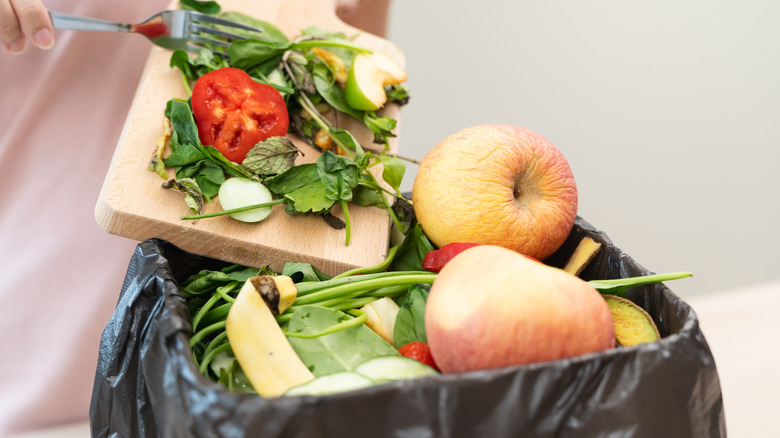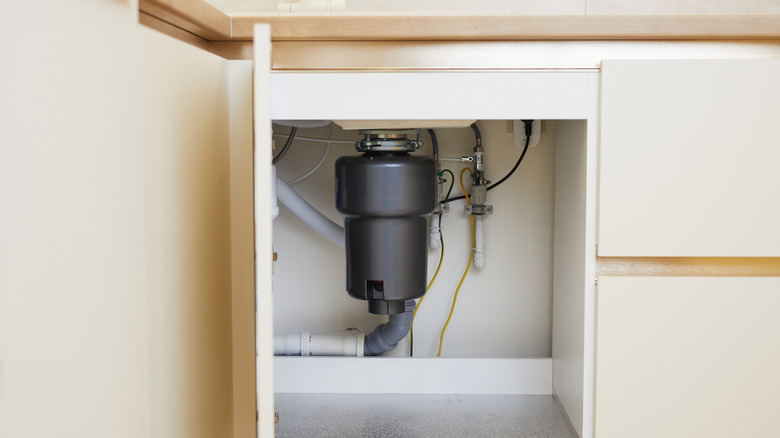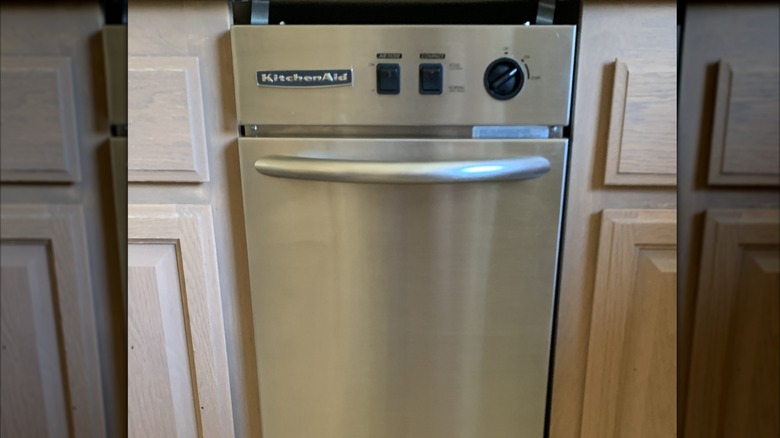Trash Compactor Or Garbage Disposal: Which Is The Best Option For Your Kitchen
No matter what you do, your trash bin always seems to overflow. You wish there were an easier way to manage it; most of us do. Between daily meals, packaging, and leftovers, kitchen waste piles up quickly, and dealing with it can feel like a never-ending chore. Garbage disposals and trash compactors offer practical solutions. They are designed to make managing waste simpler and more efficient. But which one is better? Both garbage disposals and trash compactors can help reduce the volume of household trash. However, if your goal is to eliminate the most garbage bags, the trash compactor takes the lead.
Each system brings a different kind of convenience and fits different kitchen setups. The right choice will depend on your budget, the available space, and how much you value ease versus efficiency. Here's what you need to know about how each appliance transforms the way your kitchen handles waste, and why that difference matters.
How to handle kitchen waste efficiently with disposals and compactors
A garbage disposal is the kitchen helper you don't realize you need until you have one. Flip the switch, run a little water, and food scraps vanish down the drain in seconds. It's clean, fast, and makes post-dinner cleanup feel effortless. You won't be scraping plates into the trash or taking the bin out as often, which is a luxury. There are things to consider before installing a garbage disposal, like its limits. Disposals work great for soft vegetables, cooked meat, and fruit peels. However, you should never put coffee grounds down your garbage disposal as it can damage the blades or clog the system. With a little care, a good disposal can last close to a decade, making it a practical, space-saving choice if you don't like clutter. Additionally, garbage disposals are cost-effective compared to trash compactors; the prices range from $200 to $300 or more, depending on the type of model you're using.
A trash compactor works differently. You drop your trash in, tap a pedal, and the machine presses it into a tidy bundle. Suddenly, what used to fill three bags fits neatly into one. It's ideal for packaging, paper, and plastic. Additionally, trash compactors reduce the trash volume by 80%, which keeps the bin emptier for longer, and maintenance is pretty easy. All you have to do is change the bags and wipe down the chamber occasionally. Environmentally, it's a win for cutting down on waste volume, even if it doesn't eliminate it completely. But compactors have their own quirks. Wet or sticky foods can create odors and interfere with the compaction mechanism. To help, sturdy, model-specific bags can prevent leaks. Another downside is that trash compactors are expensive, ranging from $1000 to $1800.
How to pick the right appliance for your kitchen cleanup
It all comes down to how you live and cook. If most of your waste comes from chopping, peeling, and cooking, a garbage disposal might be your best choice. It keeps food scraps from piling up, clears your sink fast, and makes washing dishes feel effortless. For handy folks, it's even possible to install a garbage disposal without help from the pros, making it an accessible upgrade for many kitchens. But if your trash can fills with packaging, paper, and takeout containers, a compactor could cut those bulky bags down to size.
Space plays a big role too. A garbage disposal tucks beneath your sink, while a compactor needs its own little corner and a bit of care. And when it comes to upkeep, disposals are easygoing; they just need the occasional rinse and clean. On the other hand, compactors need regular bag changes and a quick wipe to stay fresh. If you're still torn between the two, there's no rule saying you can't have both. Many kitchens have both: one for the food scraps, the other for the rest. Together, they turn cleanup into something almost effortless.


